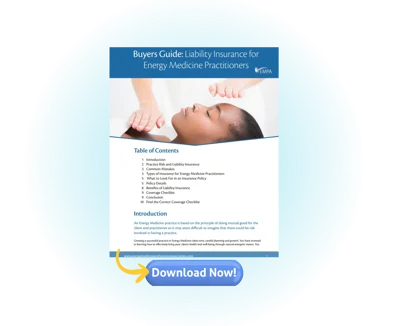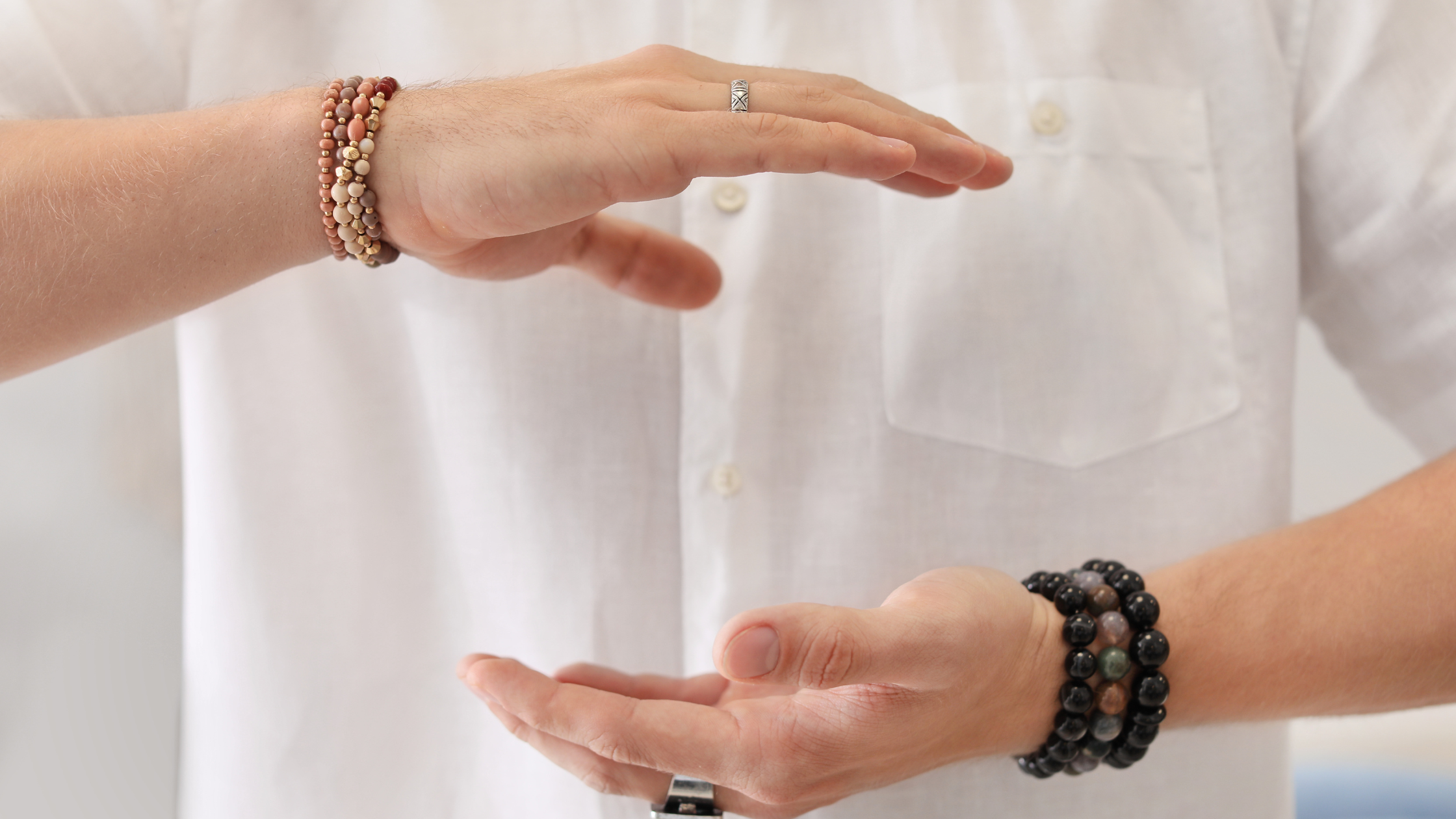Can You Really Be Sued for Something You Didn’t Do? Here’s How to Prepare
July 25th, 2025
3 min read
By Anya Charles

What if a client sues you and you didn’t even do anything wrong?
It’s a question that makes many energy healers uncomfortable, and for good reason! You do this work to help people, not to end up in a legal mess.
Even with the best intentions, things can still go sideways. A misunderstanding. A client’s unexpected reaction. Or simply being in the wrong place at the wrong time. None of it requires you to have done anything ‘wrong’ for a claim to be filed against you.
Many entrepreneurs in general will feel uneasy navigating the business side of their craft, especially when it comes to risk and legal concerns. It’s easy to assume that good relationships and good intentions will protect you. But as your work grows, so do the stakes.
The good news is: you don’t have to carry this concern alone. In this article, we’ll walk through how real this risk is, why it’s not your fault, and—most importantly—how to stay protected without feeling overwhelmed.
 Yes, You Can Be Sued Even If You Did Nothing Wrong
Yes, You Can Be Sued Even If You Did Nothing Wrong
Being careful is a best practice, and we always encourage that we set the gold standard for ourselves as practitioners. Though there are instances where ‘careful’ isn’t enough.
A client can file a legal claim even if you followed every guideline, stayed within your scope, and maintained professional boundaries. Claims aren’t always about what happened. Sometimes, they’re about how a situation is perceived.
You might be named in a complaint because a client misunderstood an outcome. Or because they expected results you never promised. Or because someone else—like a family member—believes the session led to emotional or physical harm. These things can happen regardless of your training or intentions.
Once a claim is filed, it’s no longer about whether you did something wrong. It becomes about defending your reputation, your time, and your practice. You may need to hire an attorney, provide documentation, and navigate a system that’s unfamiliar and stressful. And that’s just the beginning.
The average cost of legal defense, even when you’re not at fault, is $28,000. That’s a heavy burden to carry, especially if you’re working solo. Without support, a single claim can shake your confidence and drain your resources.
That’s why liability insurance is essential. It provides protection when things don’t go as planned, and you don’t have to face it by yourself.
💡Looking for more info on liability protection? Start here: EMPA's Free Buyer's Guide!
-1.png?width=255&height=386&name=Hubspot%20pic%20%20(1)-1.png) So What Happens If a Client Files a Claim?
So What Happens If a Client Files a Claim?
The moment a claim is filed, everything changes. Even if it doesn’t go anywhere, you still have to respond. That usually means hiring a lawyer, reviewing your session notes, and spending time away from your clients and your practice.
It’s also emotionally draining. Being accused of something—even falsely—can shake your energy and make you question your work.
Without proper coverage, the entire burden falls on you. Even one claim can quickly become a serious financial and emotional setback.
That’s where liability insurance steps in. A good policy doesn’t just reimburse you. It surrounds you with the legal support you need from the start, so you’re not scrambling to figure things out alone.
💡Before you assume you’re safe…
Even experienced, ethical practitioners can be blindsided by a legal claim. If you haven’t read How to Protect Yourself from Being Sued as an Energy Healer yet, now’s the time.
 How EMPA Liability Insurance Protects You
How EMPA Liability Insurance Protects You
EMPA’s liability insurance is designed specifically for energy healers and holistic practitioners. That means the coverage actually fits the way you work, including common risks like client misunderstandings, emotional distress claims, or physical incidents during a session.
Your policy includes both professional liability and general liability, so you're covered whether a claim involves your technique or something as basic as a slip and fall. And unlike some policies that only protect you while they’re active, EMPA’s plans are occurrence-based. That means if something happened during your coverage period, you're still protected—even if the claim comes in later.
It’s a practical safety net that aligns with the way you practice: compassionately, responsibly, and ethically. And because EMPA is also a professional association, you gain access to resources that support your growth and help you reduce risk from the start.
Choosing the right coverage is part of running a professional, trustworthy practice. It helps protect your work, your reputation, and the clients who rely on you.
What’s Next: Make an Informed Choice Before You Need To
You may never face a claim. Many practitioners don’t. But the risk is real enough—and the impact serious enough—that waiting until something goes wrong isn’t a strategy
Your work shapes you by asking you to be prepared, confident, and equipped to continue your healing without second-guessing your protection. Liability insurance won’t change how you show up for your clients, but it will change how you weather the unexpected.
If you’re not sure what kind of coverage fits your practice, start with the Buyer’s Guide. It walks you through the key details, helps you compare options, and explains what to look for—so you can make a clear, confident decision that fits your needs.
Keep in mind…the best time to protect your practice is before something happens.
Disclaimer: This article is for educational purposes only and does not provide legal, financial, or medical advice. The examples are general, and coverage may vary by policy. Always refer to your insurance provider or policy language for specific details, as the policy terms take precedence. For legal concerns related to your practice, consult an attorney.
Anya is a writer with a passion for inspiring those around her. She is the Content Manager at EMPA, where she works closely with subject matter experts to turn their insight into articles that inform, support, and empower the energy healing community. With over a decade of experience in the wellness world, she enjoys making complex ideas feel accessible and meaningful. Whether she’s writing new pieces or polishing others, Anya’s focus is on helping others grow their clarity and professionalism. She also serves as Editor in Chief of Energy Magazine, a unique publication dedicated to the world of energy medicine. Outside the office, you’ll find Anya reading, planning travel adventures, or negotiating peace treaties with her houseplants.
Topics:

.png?width=1326&height=405&name=EMPALogo_final_white-01%20(1).png)



























